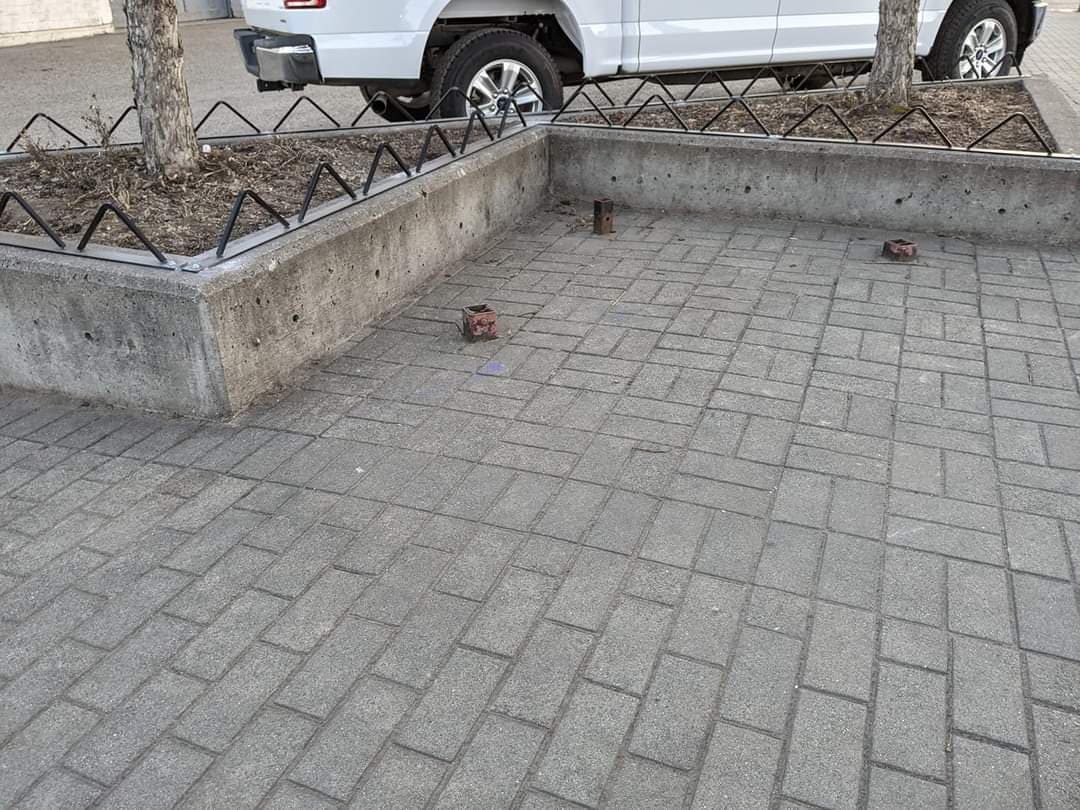A local woman is decrying the addition of ‘hostile architecture to the flowerbeds in the Gateway area.
Berlynn MacPherson started a petition after noticing something different about the flowerbeds on 20th avenue.
Metal rods bent into triangles have been installed along the sides, preventing people from sitting on the ledges.
“It’s just gross to me, it’s very anti-people. Seeing something so blatant angered me,” MacPherson told MyPGNow.
The term ‘hostile architecture’ refers to an urban design strategy that uses elements of the built environment to purposefully guide behavior in order to prevent property crime.
The practice does not do anything to fix issues surrounding addictions or mental health, MacPherson argues.
She points to other examples of ‘hostile architecture’ found around Prince George, including opera music playing outside of businesses and anti-skating spikes.
“It’s a real problem, putting up stuff like this just says ‘I don’t want to look at it, it needs to go somewhere else,'” she explained.
“There’s no solution. It’s just relocating a problem because you have an aesthetic preference for outside of your business.”
Also referred to as defensive or exclusionary design, it often targets people who rely on public spaces more than others by restricting physical behaviors they can engage in.
When contacted by MyPGNow, the Gateway Business Improvement Association says the additions were installed as a deterrent, in order to preserve the flower beds.
They are also on private property, paid for by business owners.
“They are a deterrent for people to not sleep on the bedding plants. They are not spikes, they are rounded triangle-shaped metal objects that won’t hurt anyone, but it is a deterrent,” said Daniel Denis, liaison officer for the Gateway BIA.
“There are lots of areas, benches, and parks in our area. We just don’t particularly want people to be sleeping on top of the bedding plants.”
At the time of publication, the petition has 390 signatures.
Something going on in the Prince George area you think people should know about?
Send us a news tip by emailing [email protected].






